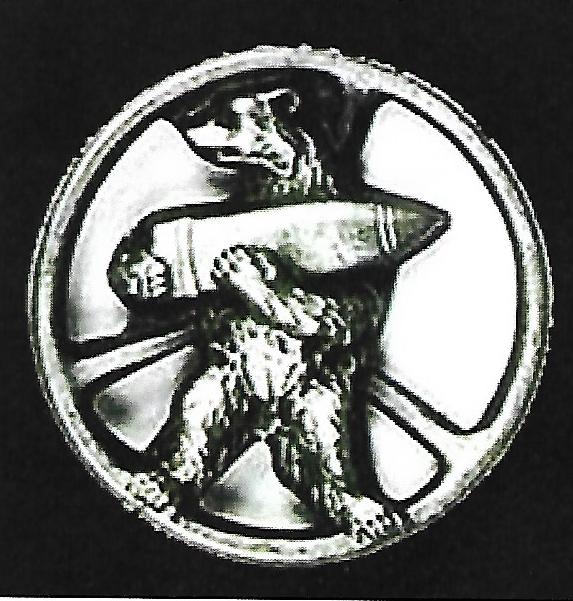Soldiers fed him with condensed milk from a empty Vodka bottle. The bear was subsequently fed marmalade, honey and syrup. He was often rewarded with beer which became his favorite drink. He also enjoyed smoking and eating cigarettes. On the journey from Iran to Palestine, the bear became the unofficial mascot of the 22nd Company. He would sit around campfires with the men eating, drinking and sleeping in tents with the men. When the motorized company was on the move Voytek would ride in the passenger seat with his head out the window shocking people walking down the street. The problem was that the British high command didn't allow any pets or animals in their camp, so the Polish Army formally enlisted Voytek into their ranks. He was given the rank of Private (at the end of the war, his rank was Corporal), assigned a serial number, and from that point on he was included in all official unit rosters. The Poles' finest hour came in the battle for Monte Cassino. The campaign was proving to be one of the bloodiest battles of the Western Front, and the Poles were brought in to make a final push to capture the fortress. During the fighting, Voytek actually hand-carried boxes of ammunition, some weighing in at over 100 lbs., from supply trucks to artillery positions on the front lines. After the war,some elements of the Polish Army, including Voytek, were reassigned to Scotland, since Poland was under USSR control, and many Polish soldiers did not like the prospect of living in a Soviet-run police state. Voytek lived out the rest of his days in the Edinburgh Zoo. He always perked up when he the Polish language spoken by the Zoo guests, and during his life in there was always being visited by his old friends from the Polish Army- some of whom would throw cigarettes down into his open arms, some would even jump into the bear enclosure and wrestle with him for old times sake.
The bear was a hero of World War II and there are statues of him and plaques memorializing his brave service in Poland, Edinburgh, the Imperial War museum in London, and the Canadian War Museum.
Soldiers fed him with condensed milk from a empty Vodka bottle. The bear was subsequently fed marmalade, honey and syrup. He was often rewarded with beer which became his favorite drink. He also enjoyed smoking and eating cigarettes. On the journey from Iran to Palestine, the bear became the unofficial mascot of the 22nd Company. He would sit around campfires with the men eating, drinking and sleeping in tents with the men. When the motorized company was on the move Voytek would ride in the passenger seat with his head out the window shocking people walking down the street. The problem was that the British high command didn't allow any pets or animals in their camp, so the Polish Army formally enlisted Voytek into their ranks. He was given the rank of Private (at the end of the war, his rank was Corporal), assigned a serial number, and from that point on he was included in all official unit rosters. The Poles' finest hour came in the battle for Monte Cassino. The campaign was proving to be one of the bloodiest battles of the Western Front, and the Poles were brought in to make a final push to capture the fortress. During the fighting, Voytek actually hand-carried boxes of ammunition, some weighing in at over 100 lbs., from supply trucks to artillery positions on the front lines. After the war,some elements of the Polish Army, including Voytek, were reassigned to Scotland, since Poland was under USSR control, and many Polish soldiers did not like the prospect of living in a Soviet-run police state. Voytek lived out the rest of his days in the Edinburgh Zoo. He always perked up when he the Polish language spoken by the Zoo guests, and during his life in there was always being visited by his old friends from the Polish Army- some of whom would throw cigarettes down into his open arms, some would even jump into the bear enclosure and wrestle with him for old times sake.
The bear was a hero of World War II and there are statues of him and plaques memorializing his brave service in Poland, Edinburgh, the Imperial War museum in London, and the Canadian War Museum.
Advertisement
Explore more
Sponsored by Ancestry
Advertisement





